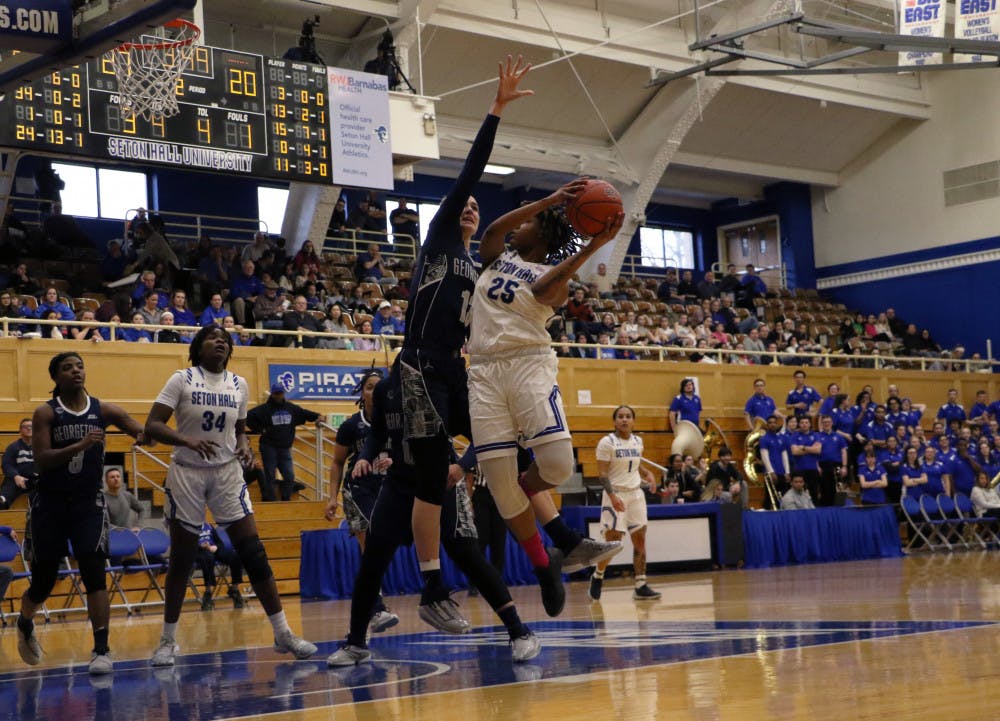Ines Angeli Murzaku Ph.D., professor of ecclesiastical history and chair of the department of Catholic studies at Seton Hall, was recently invited to participate in a special consultation on “Jerusalem and the Holy Sites: A Call for Peace at a Time of Crisis.”
She was invited by the Universal Peace Federation, a non-governmental organization in special consultative status with the Economic and Social Council of the United Nations.
“The purpose of the conference was to raise awareness on the important role which religions could and should play in international relations and in building a long-lasting peace,” Dr. Murzaku said.
Other guests included religious leaders in the Christian, Druze, Jewish and Muslim communities of Israel, Palestine and Jordan, and other government and non-government representatives from Israel, Austria and the Netherlands. The main goal of the conference is to establish a common ground between the most prevalent faiths in the region in order to facilitate understanding, peace and harmony between the different religious and ethnic groups of the region.
While the topic of the various human rights violations Israel has committed against the Palestinians in the region was not touched on during the conference, Dr. Murzaku believes that the theme of the conference applies to this situation, as well. She is aware that religion plays some part in the Israeli-Palestinian conflict, but is hopeful that it can also be the solution to the problem.
“The capacity of religion has never really been taken into account during the countless attempts to solve conflicts, although the peaceful concepts of coexistence and dialogue exist in Judaism, Christianity, and Islam,” Dr. Murzaku said.
In fact, she said, religion is often “exploited as justification in order to strengthen political-ethnical and national claims” for both sides of the conflict.
Dr. Murzaku made sure to make time for herself as well on her trip to the Middle East. She had been to Jordan for a similar conference in 2013, but never to the Holy Land itself. She was lucky enough to visit Jerusalem, Bethlehem, Nazareth and Galilee.
“I was highly impressed by the Holy Land and the people I had the privilege to meet,” she said. “The Abrahamic religions derive their entire spiritual existence and have one God in the center, however this God is called and experienced. Jews praying at the Western Wall, Muslims at the Temple Mount and a variety of Christian denominations praying in the Basilica of the Holy Sepulcher was more than impressive.”
After all her sightseeing and experiences on this recent trip, Dr. Murzaku is convinced that “Jerusalem is indeed the apocalyptic city.”
Dr. Murzaku plans on putting all she learned at the conference to good use in the classroom here at Seton Hall. She said she always has her students in mind whenever she participates in conferences or scholarly events.
Specifically in response to her most recent experience, she is looking forward to “introducing new curricula offerings for the Department of Catholic Studies emphasizing the common roots between Abrahamic religions or inter-faith dialogue as an agent of peace building.”
Dr. Murzaku said she firmly believes that everyone, including students, should be aware of the possibilities that interfaith dialogue creates and do their best to facilitate it.
“The approach to walk the educational path and to work together with educators and academics is of crucial importance in education for peace,” she said. “Change will come only if a broad range of socialization agents: education, religion, academics and religious leaders, synchronize their collective efforts for peace and moderation.”
Noora Badwan can be reached at noora.badwan@student.shu.edu.





